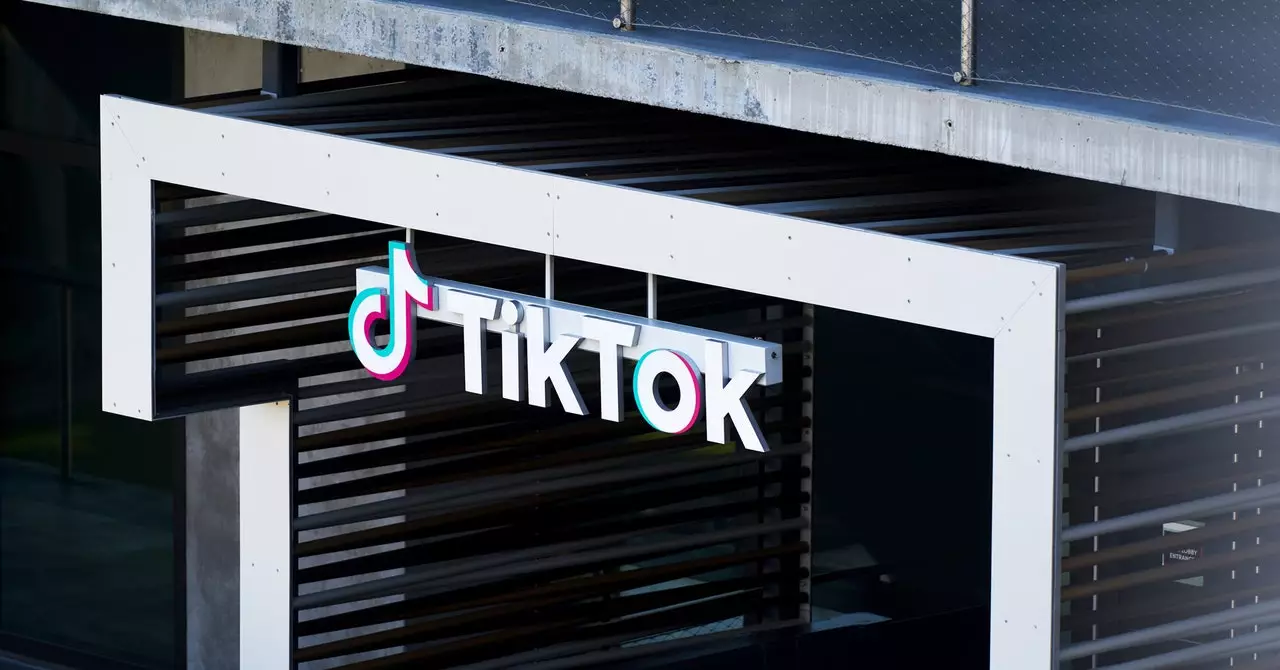As the shadow of impending elections looms, one might assume that employees of widely-discussed tech giants, like TikTok, would be buzzing with conversations about political implications and potential regulations surrounding their platform. However, surprisingly few employees at TikTok seem engaged in the high-stakes drama that could dictate the future of the app. The reality is that many staff members appear to be shielding themselves from the external turbulence of the political landscape, opting instead for a pragmatic approach focused on their day-to-day responsibilities.
A product manager situated in San Jose, who prefers to remain anonymous due to company policies, noted a stark shift in perspective since joining TikTok earlier this year. Previously concerned about a potential ban on the app, he now describes a sense of indifference towards the mounting political pressure the app faces. “I’ve become more engrossed in the products we’re developing than the politics swirling around us,” he said. His team continues to conceptualize new features without so much as a pause for the larger narrative of regulatory scrutiny—a testament to their resilience and focus.
The lack of substantial political discussion among TikTok employees speaks to a broader culture that prioritizes practicality over panic. Many employees assert that any talk about regulatory action, including the looming ban mandated by the Protecting Americans from Foreign Adversary Controlled Applications Act (PAFACA), primarily arises in more informal settings or in dialogues with international colleagues rather than within the walls of TikTok. There’s a consensus among the staff: if they cannot influence the outcome, discussing these uncertainties becomes futile.
This embodied pragmatism allows TikTok employees to maintain a semblance of normalcy in a tumultuous political climate. “We can’t control the outcomes,” said another employee, “so why drown ourselves in worry?” As they focus on delivering engaging content for users and innovating within the app, it becomes clear that much of the TikTok workforce has adopted a mindset of getting on with business as usual.
Outside influences, however, cannot be ignored. Political figures continue to make headlines with remarks regarding TikTok and its operations. Despite the apprehension surrounding a potential takeover or ban, a notable disconnect exists between the daily lives of TikTok employees and the machinations of political discourse. For instance, Vice President Kamala Harris has remained relatively silent regarding her stance on TikTok should she secure the presidency, leading to an environment where employees feel left in the dark.
On the other hand, former President Donald Trump has showcased a shift in his rhetoric toward TikTok. Initially advocating for a full ban, reports of his lobbying interests tied to major investors of ByteDance—TikTok’s parent company—have left many puzzled about his actual stance moving forward. With Trump recently stating that supporting TikTok is synonymous with voting for him, it raises questions about the sincerity and implications of his comments. Yet, as employees observe, this topic isn’t a central theme in his campaign rhetoric, leading to skepticism about what any future administration might truly pursue.
As we approach a highly impactful election cycle, the fate of TikTok remains entangled in a web of political maneuvering and public sentiment. However, the reality for those working within the company is that their focus lies firmly on innovation and product development, rather than political predictions. Employees appear cognizant that while external factors can shape their reality, company culture thrives on adaptability and resilience.
Ultimately, the paradox presents itself: a tech company heavily scrutinized and intertwined within political discourse but retaining a workforce that remains relatively unaffected on a personal level. As election results unfold, TikTok employees seem poised to navigate the future whatever the outcome, continuing with their work until higher-level decisions trickle down and require their involvement. In this climate of uncertainty, their commitment to progress may be the most striking facet of all.

